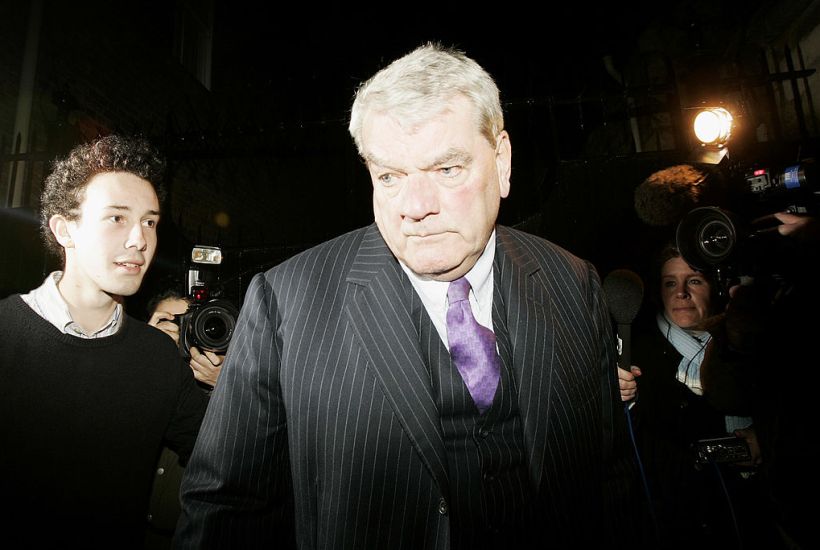For decades now a man called David Irving has been the subject of fierce contempt to honest scholars, decent citizens and, not least, Jews everywhere. He stands as an archetype of sorts in the history of fabricated facts and sordid lies. More particularly, for most of his life (he is now 79) he has denied the truth of history’s worst crime – the Holocaust.
One person who set out the case against him, in a book published in 1993 titled Denying the Holocaust, was the American historian Deborah Lipstadt. To her surprise, she was sued by Irving for defamation for calling him what he was (and still is), a “Holocaust denier”. The judgement in the case, heard by a Judge in the Royal Courts of Justice in London and handed down in April 2000, was devastating for Irving. It was a decision based on the full weight of a mountain of demonstrable evidence. Now, a major film has been made of this momentous case, Denial, and the vital issues it addressed. It has just been released in Australia.
Irving toured Australia on a speaking trip in 1987, selling his book Churchill’s War. It was his last visit before being banned on ‘character’ grounds by the Australian government in 1993. What follows is my account of his major presentation, in Melbourne, during that visit.
The large meeting room of the Melbourne YWCA was full to capacity, about 200 people sat quietly in eager anticipation of the great ‘revisionist’ himself – Mr David Irving. It was a Saturday night and the grandly titled ‘Anglo-European Fellowship’ weekend seminar was coming to its painful climax. Mr Irving, historian, enthusiast and seasoned stirrer was the keynote speaker, the star of this bizarre ‘hate-in’. Appropriately, he was introduced by Mr Eric Butler, the father figure of the League of Rights and paranoiac populist par excellence. The mood was set; the mostly (but not solely) late middle-aged audience was seemingly happy with itself that at least on this night they would hear ‘the full story’, the unadulterated TRUTH from ‘the man who knows’.
The audience quite clearly disliked the local lefties, but sadly, they also disliked, or were encouraged to dislike, the most distinguished ‘righty’ of them all – Winston Spencer Churchill. It must, however, be said that some of the audience found this too much to swallow in one gulp. While the audience was seemingly happy to believe almost anything if it was presented with the appropriate conspiratorial flavouring, it appeared, to me at least, that the remorseless denigration of Churchill stirred the occasional outbreak of ‘cognitive dissonance’.
Mr Irving is an enormously prolific, if peculiar, historian who has widely advertised his hatred of Churchill. Indeed, Irving’s ‘hates’ are so catholic and selfless he has devoted the last ten years writing a very fat book on why we should all share his hatred for Churchill.
Mr Irving is nothing if not confident. At times his audacity is positively Churchillian but, alas, without the faintest flicker of Churchill’s self-mocking wit. Irving is, however, formidably clever and it would be quite mistaken to see him as just another rancorous fruitcake served up by the League of Rights. The fact is he is a very clever and dangerous fruitcake. He started his evening’s performance, and an amazing performance it was, by rattling off all the received wisdom about Churchill. He then proceeded to take the legend apart, cataloguing and elaborating on Churchill’s every inadequacy and foible, real or simply alleged.
A conceited man, Irving comes over as a right-wing, if somewhat upmarket, version of our very own John Pilger, Australia’s poisoned gift to the world. Both Pilger and Irving share the same narcissistic satisfaction in believing that they, unlike the rest of us poor slobs, have actually uncovered the real story of history, usually a close secret which only they, through their intellectual courage, have exposed. The exclusivity of their stories too often seems to rest on the fact that they never happened.
Irving has, for instance, come to the startling conclusion that because he could find “no evidence to link Hitler with the Holocaust” no causal link exists. This is the key to understanding Irving’s ‘historical method’. His fetish for primary documents, an otherwise laudable attribute in an historian, seems to have blinded him to the glaringly obvious point that the unsurprising elusiveness of damning literal documentation (even if it exists) can hardly be said to contradict the testimony of literally millions whose individual and collective experience must make the relevance of such precise documentation utterly superfluous. In simpler times this observation was called common sense. As for Churchill, Irving maintains he was a callous, cowardly and incompetent drunk whose only achievement was his gift with the English language and even this distinction Irving turns into a knife. It is, simply, a grotesque judgement which reveals more about Irving’s mind than Churchill’s feet.
To give Irving his miserable due, he does have a knack for digging up otherwise hidden documents. The problem lies with how he uses them. Like the man who knows the price of everything and the value of nothing, the pathetic paradox of Mr Irving is that the more documents he discovers the more thoroughly he exposes his genuinely profound lack of any historical or moral judgement. Watching Mr Irving perform was worth the effort. After all, it’s not everyday one can observe up close the curious camouflage of evil. Mr Irving is a muscular nihilist who, one half suspects, is the self-pitying victim of some very deep disappointment in early life; how else does one explain such indecent perversity? Goethe’s line – “there is none so dangerous as the disillusioned idealist’ – might well provide the answer.
Got something to add? Join the discussion and comment below.
Got something to add? Join the discussion and comment below.
Get 10 issues for just $10
Subscribe to The Spectator Australia today for the next 10 magazine issues, plus full online access, for just $10.


























Comments
Don't miss out
Join the conversation with other Spectator Australia readers. Subscribe to leave a comment.
SUBSCRIBEAlready a subscriber? Log in